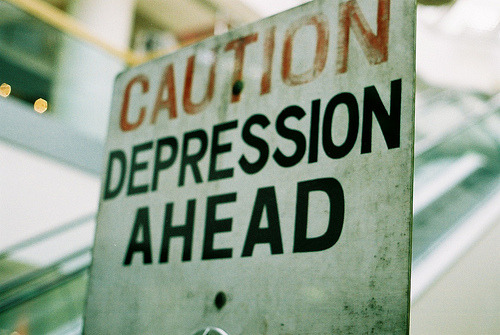- Ableist Word Profile is an ongoing FWD/Forward series in which we explore ableism and the way it manifests in language usage.
- Here’s what this series is about: Examining word origins, the way in which ableism is unconsciously reinforced, the power that language has.
- Here’s what this series is not about: Telling people which words they can use to define their own experiences, rejecting reclamatory word usage, telling people which words they can and cannot use.
- You don’t necessarily have to agree that a particular profiled word or phrase is ableist; we ask you to think about the way in which the language that we use is influenced, both historically and currently, by ableist thought.
- Please note that this post contains ableist language used for the purpose of discussion and criticism; you can get an idea from the title of the kind of ableist language which is going to be included in the discussion, and if that type of language is upsetting or triggering for you, you may want to skip this post.
We just ran an ableist word profile on the word “crazy,” written by the lovely guest poster RMJ, who discussed how the term is used in a variety of contexts and situations. This follow up is sparked by what I’ve seen as a recent resurgence here in the United States in use of the term in a political context, to describe or characterize an individual with a particular set of political views. Every time I see it, it grates on me, and I thought it was worth a focused discussion here at FWD.
Before I begin, I should make clear that I personally identify as “crazy” sometimes. Not always, but when the depression gets overwhelming and I can tell my thoughts are getting tangled, or especially when I’m in the grips of a manic episode. (More accurately, I identify as a “crazy bitch,” but that’s neither here nor there.) I’ve also been consistently described by others as “crazy,” in contexts ranging from affectionate to outright hostile and dismissive. So when I see this term tossed around in the media, it feels personal to me.
And it’s been tossed around a whole lot lately, largely by traditionally liberal or progressive media outlets. I first started seeing it show up at Talking Points Memo, Josh Marshall’s blog that combines “breaking news, investigative reporting and smart analysis.” Marshall doesn’t mention it on the site, but it also contains a big heaping spoonful of ableism with that political analysis. Here are some recent examples:
- Crazy Aunt, Unleashed – about Sarah Palin
- Mainstreaming the Crazy – lamenting the Right’s reaction to Obama speaking to schoolchildren about health reform, and implying that the fringe “crazy” element of the party had infected the mainstream
- Meet the Crazy Caucus – a listing of Republican congresspeople who espouse “crazy” views and are implied to have a caucus, equivalent to existing formalized congressional caucus groups
- Postcards From the Crazy – about Frank Gaffney
- Crazy Arizona – about the recent immigration law and other racial laws passed in the state
- Crazy 101 – about the Texas revisions to history textbooks
This is just a sampling of the posts with headlines including the term “crazy” and is not at all comprehensive. Even within this sample, we can see that the term is used to describe viewpoints with which TPM does not agree (like revising history textbooks or arguing, like Gaffney, that the Pentagon logo indicates a secret plan to subject the United States to Shariah law) and thinks are biased, bigoted, racist, or otherwise offensive (such as the protests about Obama speaking to schoolchildren or the racial laws in Arizona). None of the posts, though, engage or critique those viewpoints or speakers in a substantive way – simply describing them as “crazy” is seen as self-evident and no further discussion is needed to demonstrate these views or people should be excluded from reasonable political discussion.
There’s been an even more recent explosion of use of the term to describe Rand Paul and Paul’s views, after he won a Republican congressional primary in Kentucky.[1. An earlier version of this post had stated, in error, that Dr Paul won the Republican congressional primary in Virginia. Thanks, Katie, for the catch.] Paul favors the free market and freedom of private business, to the extent that he seems to believe that anti-discrimination laws are an unreasonable restriction on businesses. Now I am no fan of Mr. Paul – and wrote about my problems with him previously on FWD – but that doesn’t mean I approve of political cartoons like this:

To my mind, characterizing Rand as “mad” or “crazy” and not saying anything further is a lazy way to dismiss him and his ideology without actually having to engage with it. There is a lot to say about Rand’s ideas: how prioritizing private business over human rights preserves existing institutional structures that will continue to perpetuate racism, sexism, ableism, and other oppression if not checked by a larger force like the government; how the line between private and public realms is a lot fuzzier and less distinct than Paul implies it to be; that the Gulf of Mexico oil spill and BP’s seemingly inadequate safety protections and near complete inability to effectively respond are strong indications that business will prioritize profits over public goods like environmental safety; how an attitude of business before anything else will influence Rand’s views on everything from the minimum wage to immigration policy to climate control to internet neutrality. Those are all important discussions to have, discussions where we can’t assume that everyone in the audience will come down on the same side, but calling him “crazy” or “mad” and leaving it at that elides all of those complicated issues. Even more strongly, it implies that those discussions are not even worth having because it is so evident that the views or person being dismissed are wrong and absurd and laughable.
In Newsweek, Conor Friesdorf made an interesting observation about the policies and people who are dismissed as “crazy”:
Forced to name the “craziest” policy favored by American politicians, I’d say the multibillion-dollar war on drugs, which no one thinks is winnable. Asked about the most “extreme,” I’d cite the invasion of Iraq, a war of choice that has cost many billions of dollars and countless innocent lives. The “kookiest” policy is arguably farm subsidies for corn, sugar, and tobacco—products that people ought to consume less, not more.
These are contentious judgments. I hardly expect the news media to denigrate the policies I’ve named, nor do I expect their Republican and Democratic supporters to be labeled crazy, kooky, or extreme. These disparaging descriptors are never applied to America’s policy establishment, even when it is proved ruinously wrong, whereas politicians who don’t fit the mainstream Democratic or Republican mode, such as libertarians, are mocked almost reflexively in these terms, if they are covered at all.
What I conclude from that is that the media doesn’t consistently use “crazy” and other ableist terms to refer to absurd policies or those that lack rational support, but instead reserves those terms for people outside of mainstream politics. Which in turn implies that the term is used primarily to further marginalize and dismiss people who don’t fit expectations of what a politician is or what are common or popular political arguments. To me, this is even more evidence that the implicit subtext of terming a person or policy “crazy” is “shut up and go away, or start blending in better.” Which, again, is exactly the message leveled at people with mental illness when they’re called “crazy” or “loony” or “unhinged” or any number of synonyms.
This selective usage is even more reason the term “crazy” shouldn’t be used in the political context – partly because it’s a lazy out for commentators who refuse to engage with the actual policy issues or political ideas being proposed on a substantive level, and partly because it fiercely underlines and reinforces marginalization and dismissal of people with mental illness. It reminds me that when people call me “crazy,” what they really mean is “stop existing in my consciousness – either disappear or become normal.” To see progressive writers and organizations rely on the marginalization of people with mental illness to score easy points against unpopular politicians is upsetting not only because of their perpetuation of ableism, but also because it puts me in the extremely uncomfortable position of defending people like Palin and Paul against this kind of criticism.




